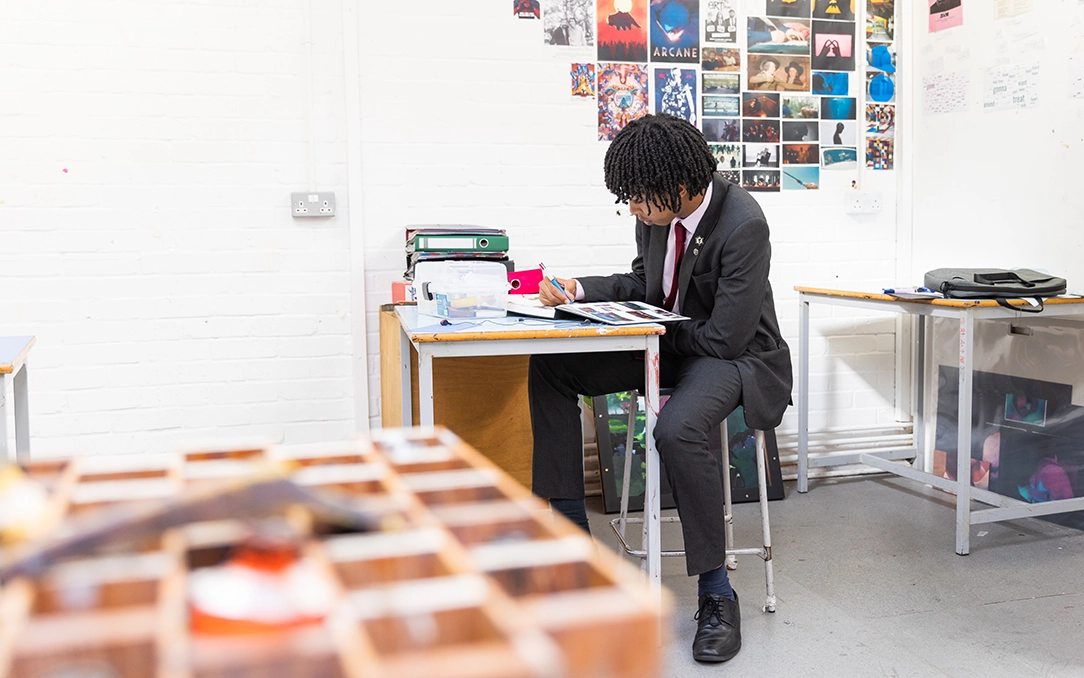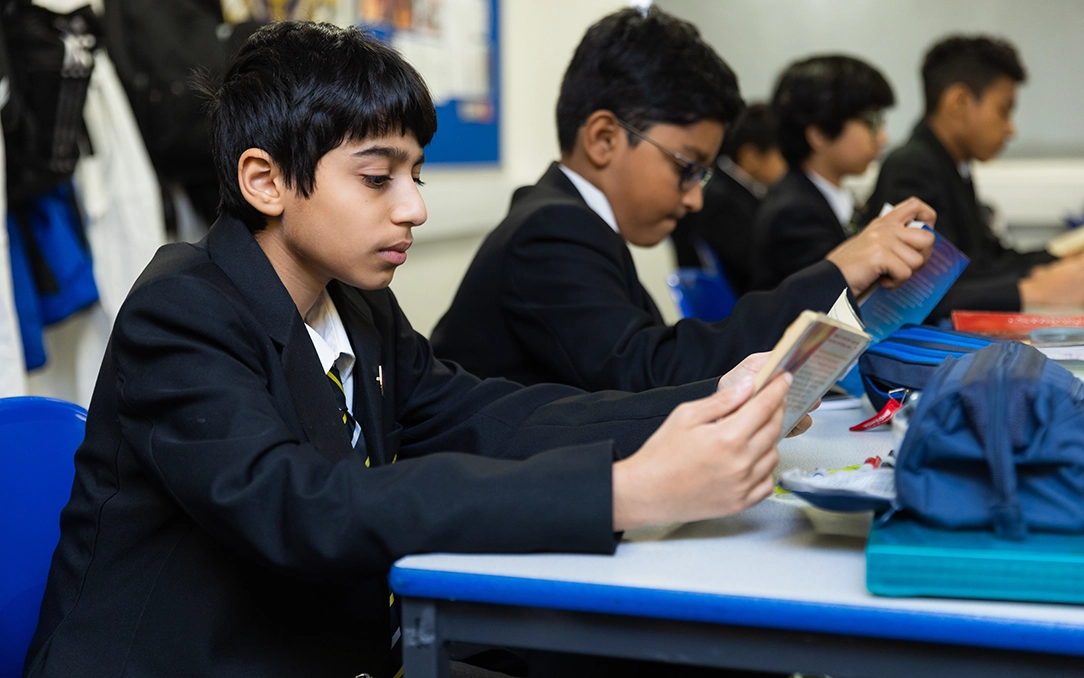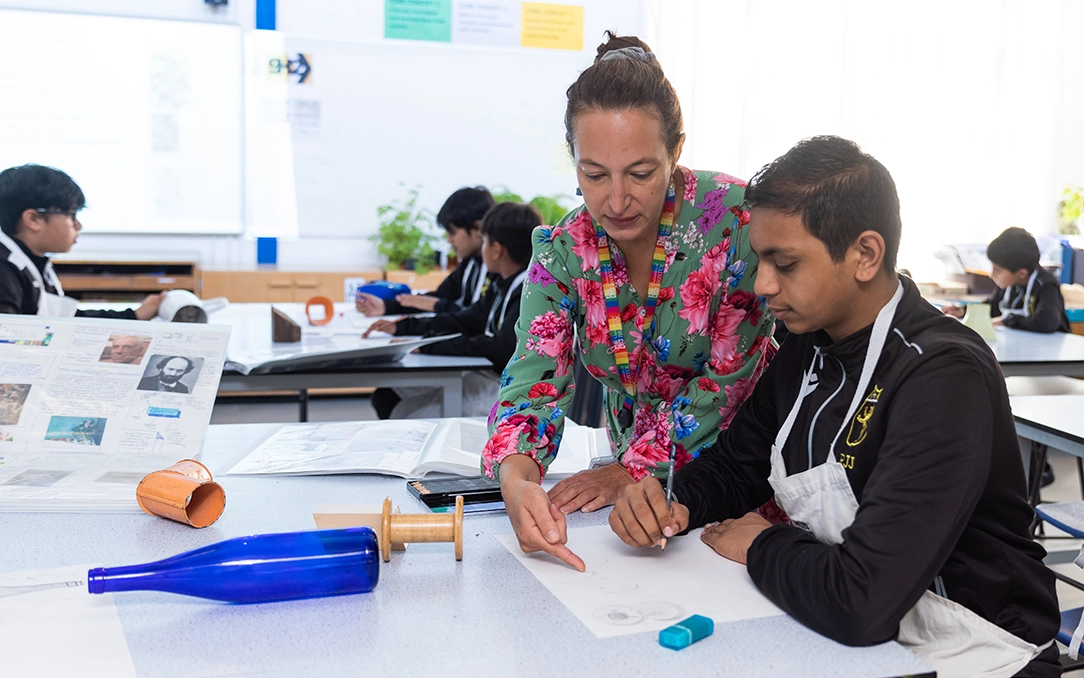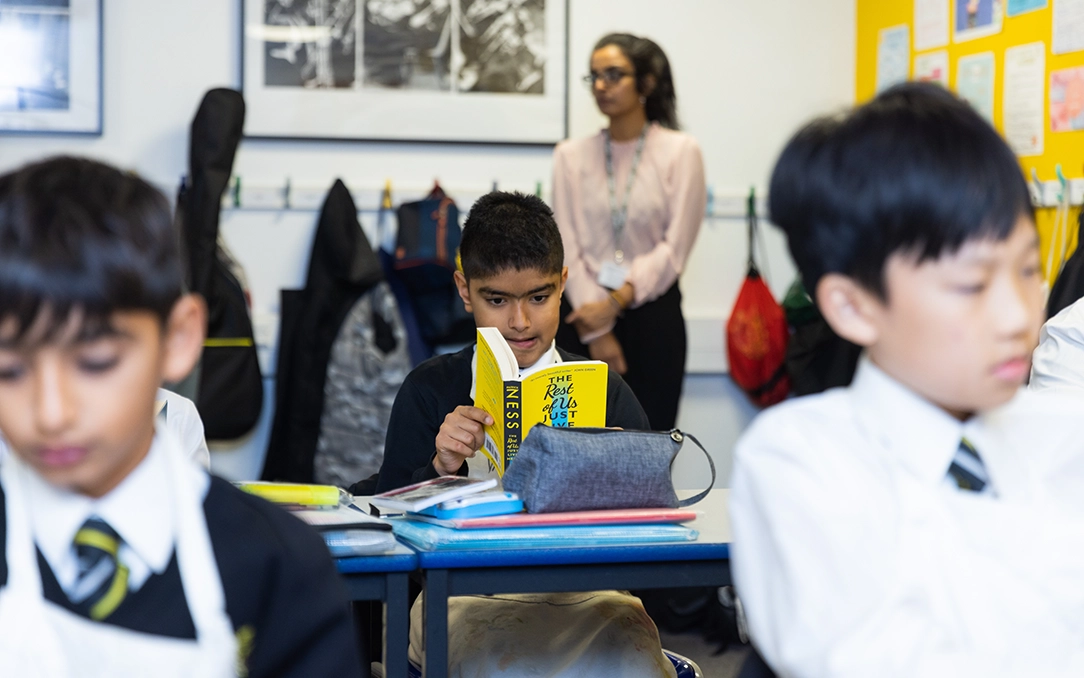Homework, Study Support & NEA
We are regularly asked at Parents' Evenings how parents can help their sons in their studies. Please read on for useful advice both on general principles and also on specific subjects.
Homework
- Homework is intended to be done at home. It is a good idea to set aside a specific period of time for study and to make this into a daily routine.
- The length of time needed to complete homework varies.
- Your son will need a suitable space in which to do the work, preferably free of distractions such as electronic devices.
- Tasks set may involve using a computer, so you may want to take steps to ensure that the time spent on the computer is directed towards the set task. Where possible, the computer should not be in your son's bedroom so that you are able to monitor usage.
- It is not possible for parents to supervise the entire homework session closely, but it is important to take an interest in what your son is doing; the occasional oversight of his work and question about what he has learnt will be very helpful.
- You can check the details of the tasks set in your son's homework planner. There may also be messages from your son's teachers on the current page. Please sign the planner weekly to confirm that you have read it and are satisfied that your son has done his best to complete the work.
- Very bright boys often make short work of their home study and may claim to have finished it at school or on the way home. This may well be true from time to time, but it should not become a regular occurrence. If it does so, please inform your son's tutor.
- If you have any concerns over the homework or your son's progress, you can use the planner to note your comments, and this should be picked up within a week by your son's tutor. Alternatively you can always contact the school (via your son's Head of Year) if you have any concerns about homework.
Year 7
- Homework is set twice weekly for Maths and English; these tend to be short exercises following each lesson
- Homework is set weekly for Science, MFL, Latin, RE, History and Geography
- Homework is set fortnightly for Literacy, Music, IT, DT and Art
For subjects where homework is set fortnightly, this is all within the same week (e.g. all Music homework is set in Week B) to help teachers with multiple classes in their planning.
Year 8
- Homework is set twice weekly for Maths and English; these tend to be short exercises following each lesson
- Homework is set weekly for Science, MFL, RE, Art, Latin, History and Geography
- Homework is set fortnightly for Music*, IT, and DT*
*Music and DT are on the timetable thrice for each class to ensure that Homework can be set (one slot per fortnight will be blank for each student); class teachers to decide which one of these three slots they use.
Active Revision
At various points during the school year, your son will need to prepare for formal assessments in many subjects. It is essential for boys to get into the habit of revising methodically. In order to do this, they need to ensure that they know what they are going to be asked to write about. They then need to revise the relevant material; this is often best achieved with a series of shorter sessions, over perhaps a few days, than in one long marathon.
Boys should pay close attention to the revision lists, guides and materials provided to them by their subject teachers as this will give the most relevant indication as to what needs to be revised.
Where boys have a set amount of factual material that they must master, it is usually insufficient simply to re-read the text-book. In order to learn effectively, the facts have to be mentally processed, and this is often best done as follows:
- The student makes his own notes in stages: first, he condenses paragraphs into shorter paragraphs or sentences; then, perhaps a day or two later, sentences into bullet points or key words.
- The information can be arranged on the page sequentially, or in any number of other ways, such as a flow chart or a spider diagram. This transforms the process into active revision, as opposed to the purely passive activity of reading.
- If the notes are put together thoughtfully, it should be possible to dispense with the original text or source book and set about learning the condensed notes; make it a goal to be able to reproduce whole sections of notes from memory, and then compare with the original to see whether anything significant has been left out.
- This process (often called 'mind mapping') should be a challenging and enjoyable activity that instils a sense of purpose, achievement and confidence.
Further Reading
Preparing for Success: Tackling Revision
Non-Examination Assessments (NEA)
Students, who study a subject with an NEA component must know the deadlines that they need to meet and understand the exam regulations that they have to follow about preparing their work, referencing, plagiarism (including AI) and the penalties for breaking these rules and should be familiar with the following documents:
They should be aware that we have a duty to report any incidents of students breaking the exam regulations that have been set out to the awarding body. If they have any questions about this, they should ask the teacher of the relevant subject.
Parents are asked to ensure that they are aware of the tasks that are being undertaken for these and to support their sons in ensuring that deadlines are met. Experience shows that some boys do need close support in undertaking the levels of independent study that are required by some items of these assessments. The deadlines indicated are not negotiable. Departments will support boys in organising their work to meet the deadline; and the Head of Department will contact parents in sufficient time if he/she considers a boy to be likely to miss the deadline for any reason. Meeting the deadline means presenting work of a good standard. Failure to meet the deadlines is never an acceptable option and the department will take in no work after the deadline has passed. Failure to submit coursework on time may result in withdrawal of examination entries.




